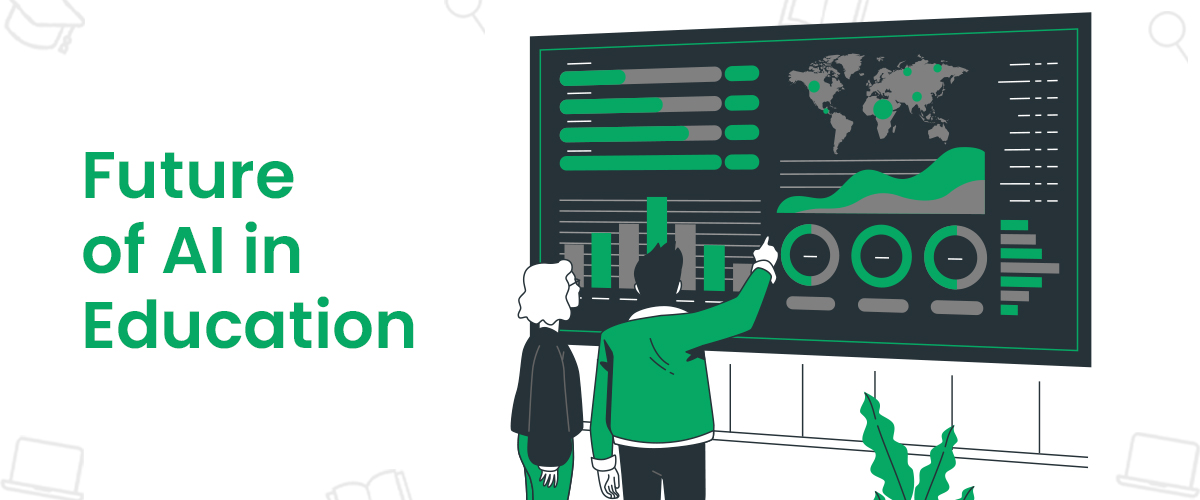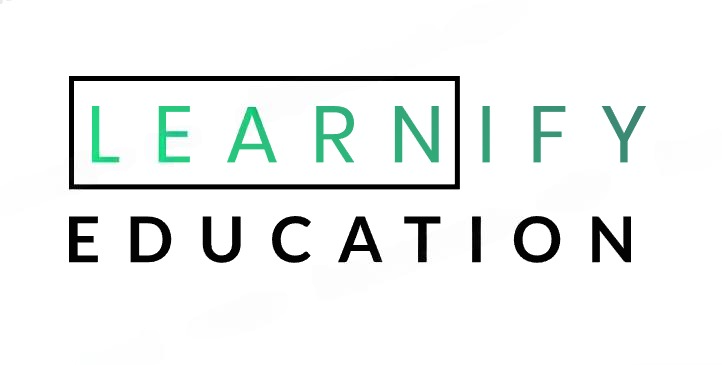











Compare India's leading
universities on a single platform
within two minutes.
- Online MBA for job professionals 100 + Universities
- 30X comparison factors
- Free expert consultation
- Quick Loan facility
- Post Admission Support
- Learnify Exclusive Community
- Job + Internship Portal
Future of AI in Education: Transforming Learning for the Next Generation
- No-Cost EMI From ₹5100/-
- Subsidy Available upto ₹20,000/-

Artificial Intelligence (AI) is revolutionizing education, making learning more personalized, efficient, and accessible. From adaptive learning platforms to AI-driven assessments, the integration of AI is shaping the future of education. But how exactly is AI transforming the educational landscape, and what can we expect in the coming years? Let’s explore the future of AI in education.
1. Personalized Learning with AI
One of the most significant advantages of AI in education is personalized learning. AI-powered tools analyze students’ learning patterns, strengths, and weaknesses, offering customized learning experiences.
- Adaptive Learning Platforms: AI tailors coursework based on students’ progress, ensuring they grasp concepts at their own pace.
- Smart Tutors: AI-driven virtual tutors provide instant feedback, assisting students with difficult concepts.
- Content Customization: AI curates personalized study materials, suggesting resources best suited to an individual’s learning style.
Impact: Students can learn at their own speed, reducing the pressure of traditional learning systems and improving comprehension.
2. AI for Skill-Based Training and Upskilling
AI is not just for academic education but also plays a crucial role in vocational training and upskilling.
- AI-driven Simulations: Virtual Reality (VR) and AI-powered simulations provide hands-on experience in various fields, including medicine, engineering, and management.
- Automated Learning Paths: AI suggests courses and modules based on a learner’s career goals.
- Industry-Specific Training: AI enhances professional development by offering industry-relevant courses and assessments.
Impact: AI-driven upskilling ensures that students and professionals stay updated with the latest skills and market demands.
3. AI as an Assistant for Teachers
Teachers can leverage AI to automate administrative tasks and focus more on interactive teaching.
- Automated Grading: AI can grade multiple-choice tests, essays, and assignments, saving valuable time.
- Attendance Monitoring: AI-powered facial recognition tracks student attendance effortlessly.
- Performance Analytics: AI analyzes students’ progress, helping educators design better learning strategies.
Impact: Teachers can dedicate more time to student engagement rather than manual administrative tasks.
4. AI for Smart Assessments and Performance Tracking
Traditional assessments are being replaced by AI-driven evaluation methods that offer deeper insights into student learning.
- AI-based Proctoring: Online exams use AI to prevent cheating and ensure fairness.
- Real-time Performance Analysis: AI tracks student engagement, predicting areas of difficulty.
- Skill-Based Evaluations: AI evaluates not just knowledge but also critical thinking and problem-solving skills.
Impact: AI-driven assessments ensure a fair and comprehensive evaluation of students’ capabilities.
5. AI for Inclusive and Accessible Education
AI is breaking barriers in education, making learning accessible to all, including students with disabilities.
- Speech-to-Text & Text-to-Speech: AI enables visually and hearing-impaired students to learn effectively.
- Multilingual Learning: AI-driven translation tools break language barriers in education.
- Personalized Assistance: AI-powered chatbots help students navigate learning platforms efficiently.
Impact: AI promotes inclusivity, ensuring education reaches every learner, regardless of their limitations.
6. Future Trends of AI in Education
The future of AI in education is promising, with continuous innovations on the horizon:
- AI-powered Emotional Intelligence: Future AI tools may gauge student emotions to adjust learning methods accordingly.
- Blockchain for Secure Credentials: AI and blockchain together can ensure secure and verifiable academic records.
- AI-Powered Career Counseling: AI will assist students in making career decisions based on their strengths and industry trends.
Conclusion
AI is redefining the education sector by enhancing personalized learning, automating administrative tasks, and making education accessible to all. The future of AI in education holds limitless possibilities, ensuring an efficient and engaging learning experience. Educational institutions must embrace AI-driven innovations to prepare students for a smarter, tech-driven world.
The future of AI in education is not just about technology—it’s about shaping a better, more inclusive, and personalized learning environment for the next generation.


